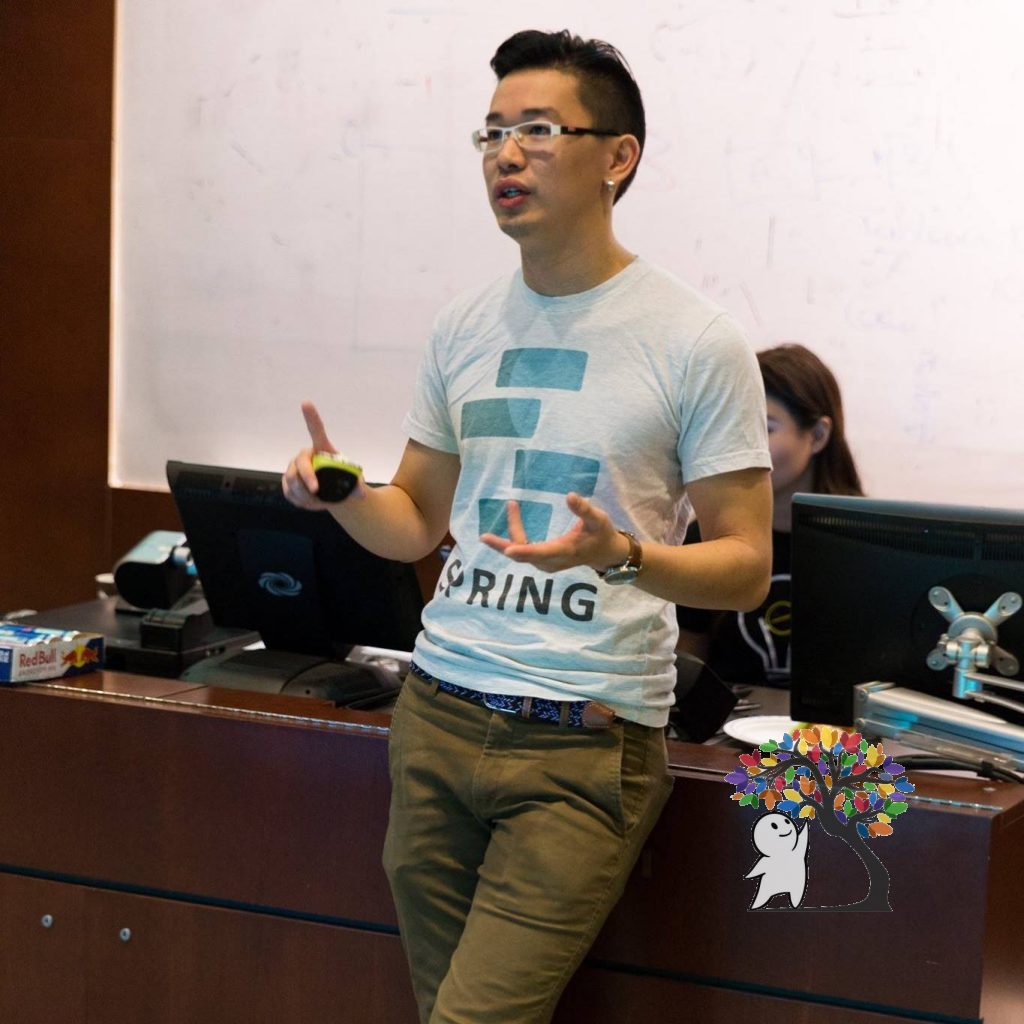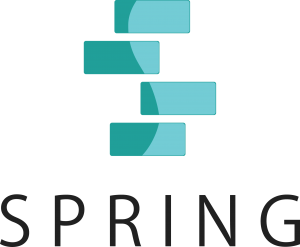Interview with Chin Chang Hing, Head Growth of a Social Impact Incubator

Chin Chang Hing is currently one of our advisors and many mentors to the founder of Psych2Go. Chin and I met around 2014 when Psych2Go barely started. Chin being roughly the same age as myself is currently the head of growth for Spring, a global community for purpose driven leaders. Today, we interview Chin to learn more about what he’s up to and what Spring is. Hope you find some useful insights from this interview if you’re curious about the journey of Psych2Go.
Tell us a bit about yourself and what Spring is.

I’m Chin, Head of Growth at Spring – A community for purpose driven leaders.
We support entrepreneurs by running Leader Roundtable groups that give them a space to share challenges, learn from each other, and push each other to further heights with their business.
You became a mentor to Psych2Go’s founder and helped him along the way with business strategies and personal life strategies. What were some of the advice that you gave to help Psych2Go to help it get to where it is today?
To give credit where credit is due, Tai is an amazing entrepreneur himself, he has the hustle and is a strong executor. If he wants something to happen, it happens.
Where I’ve helped? I’d like to think in a few ways:
- Guiding Tai on building a stronger personal brand and network (peer entrepreneurs, mentors, advisors)
- Providing Tai with the mental support to overcome the stress of running a business. It’s a very taxing process, especially if you’re a solo-founder and everyone around you doesn’t understand business and doesn’t believe you can succeed.
- Shaping a revenue sustainable mindset with Psych2Go. When I met Tai, he was great at building community and marketing, there wasn’t much focus on generating sustainable revenue and the whole venture was heavily reliant on Ads for revenue.
What’s your role with Spring?
Head of Growth – I support Spring with growth. What does that mean?
- Helping with shaping and adjusting our programs to meet the needs of entrepreneurs.
- Ensuring that entrepreneurs who need support are being placed into the right programs.
- Supporting marketing efforts and sales strategy to help Spring grow and reach a larger audience
I also support our companies with Growth, primarily from a revenue/sales perspective
- Sales strategy
- Sales Techniques
- Pricing
- Financial review and strategy
- Business strategy
- Acquiring new customers
- Copy review and crafting sales scripts
What does your mentorship program look like?

Our Leaders Roundtable groups are centered around peer mentorship. This model is a tried and tested method and is also known as “Masterminds”
What we’ve learned is – incubator/accelerator programs that are content rich and curriculum in-nature don’t work, people need support on their challenges immediately as they arise. Entrepreneurs learn the most through immersive observation, instead of having a subject matter expert come in and show them high level strategy, they learn the most seeing how others implement and getting granular with the details. Entrepreneurs are more receptive when we’re not the only people telling them they’re making a mistake, but when they’re able to hear that feedback from many other founders.
This is why our Roundtable programs are centered around peer learning. We wrap the support that and accelerator would bring around that – by providing our members free 1-on-1 access to advisors & mentors and bringing in subject matter experts to run workshops on specific topics.
What are some great advice or resources you have for starting entrepreneurs who are trying to do something great in the social impact space?
- Impact entrepreneurs never have a challenge articulating impact, but remember, impact alone doesn’t sell. You have to have a great product/service too, being a social enterprise is no different from running a regular business, you’re not immune to market trends, nor will you find it any easier to sell your product.
- Impact and Profit are not 2 polar opposites, you can create profit while making good impact too. Many impact entrepreneurs are uncomfortable with charging their customers/users for their products/services and gravitate towards fundraising, many traditional entrepreneurs believe that profit comes first and impact takes a backseat. There’s a balance for both and it is not difficult to run a meaningful and profitable business and find peace in doing so.
Would you consider Psych2Go part of a social impact initiative?
Impact can be a pretty broad conversation. I like to think that we shouldn’t let others judge how we define impact, but impact should stem from the founders and the community.
So my answer to that is – while I don’t know if Psych2Go sees itself as a social impact initiative, I believe that there are a lot of impactful things being done
- Increasing awareness and decreasing stigmatization involved with mental health
- Community support and skill development (Tai really cares about the people he works with and constantly favours bringing on less skilled individuals who are values aligned and provides them with the training & support needed in their roles)
What/how have your journey look like?
I came across Spring in 2014 when I was making my second transition out of corporate to start my second startup. I joined their incubator program to learn more about validating my idea and launching the business successfully. By applying the Lean approach to running a business, I was able to launch within a month and secure 3 paying customers without a proper product/service package, I was profitable within 6 months, it was a big shift for me since I made plenty of rookie mistakes with my first startup before – I spent too much time working on developing the product, I was a perfectionist, I spent too much money and hired too many employees, all without validating the market and speaking to any customers – I believed that I knew what people wanted, and that if I build something great, people will naturally want to use it, boy was I wrong.
I joined Spring in 2015 because I believed in their approach and wanted to help other entrepreneurs avoid the same mistakes that I made. It was initially a part-time involvement but I gradually transitioned to being a core member of the Spring team. A few factors that contributed to it were: 1. Regulation with aerial photography became more stringent and I was not willing to adjust 2. I learned that I wasn’t actually passionate about my business 3. I learned that Spring aligned better with my personal values.
Since then, I’ve helped with evolving Spring to provide better support to entrepreneurs, I’ve always taken the approach of building what I would want to receive as support if I were an entrepreneur (which I still am, but more of an intrapreneur now).
At Spring, we currently focus on doing 2 things
- Supporting companies with raising seed capital.
- Running Leader Roundtable groups that help companies with scaling and unlocking growth.
What was a life changing point of your life and how has it made you the person you are today?
Taking the plunge from corporate to startup, I’ve learned more in the last 3 years than collectively from elementary to university. Many people fear the risks involved with entrepreneurship, so long as you’re not afraid to work hard, learn a tonne, and seek support, you’ll very quickly realize that the skills you build make you far more employable and there’s always an opportunity to return to corporate (if you so choose).
You are very big on WHY’s. Could you share with our audience the importance of WHY’s and how you help coach your students to discover their WHY’s?
Many entrepreneurs start companies because of opportunities – something hasn’t been done before, a new an innovative solution, a get-rich-quick idea. But many fail.
This happens because the road is often steeper than we realize and those that are not grounded by a strong WHY or motivation, are the first to dismiss the “opportunity” as not really being as big as they thought it was and give up. The most successful entrepreneurs, companies, or even employees, are the ones that focus first on understanding themselves, their motivations, their values, and then they do everything they can to live true to themselves and create the change they hope to see in the world. If something doesn’t work, they don’t give up, they find a different way to get to the same end goal.
If you’re unclear on your passion, instead of focusing on learning about business, start by taking some time to delve into personal development. Learn more about yourself and become more aware of your likes, dislikes, strenghts, and weaknesses.
What are your top favorite three books of all time? And why?
Contagious by Jonah Berger – Breaks down the elements of virality
The Slight Edge by Jeff Olson – How incremental changes create monumental results
How to Win Friends & Influence People by Dale Carnegie – How to treat people the way they want to be treated.
As an advisor to psych2go, where do you hope to see it become in the next 2 years or so?
I hope to see it become an enduring company that doesn’t have to worry about revenue. I hope to see the brand become well known brand that the general public will be acquainted and excited about.
You can connect with Chin through his Linkedin: here




Responses